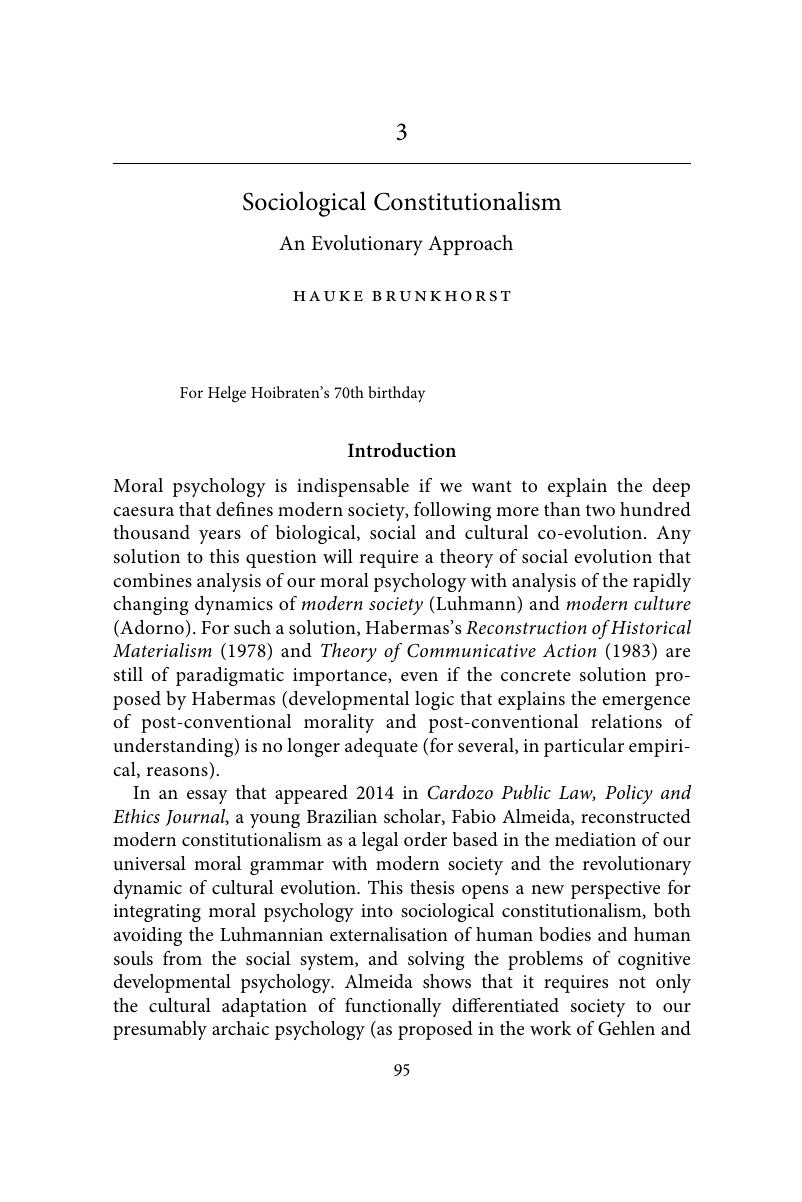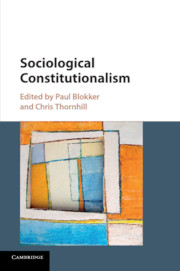Book contents
- Sociological Constitutionalism
- Sociological Constitutionalism
- Copyright page
- Contents
- Figures and Tables
- Contributors
- Acknowledgements
- Sociological Constitutionalism
- Part I National Constitutions and Sociological Method
- 1 The Social Lives of Constitutions
- 2 Towards a Sociology of Constitutional Transformation
- 3 Sociological Constitutionalism
- Part II Constitutional Sociology between the National and the Transnational
- Part III Constitutional Law and Transnational Society
- Index
- References
3 - Sociological Constitutionalism
An Evolutionary Approach
from Part I - National Constitutions and Sociological Method
Published online by Cambridge University Press: 06 October 2017
- Sociological Constitutionalism
- Sociological Constitutionalism
- Copyright page
- Contents
- Figures and Tables
- Contributors
- Acknowledgements
- Sociological Constitutionalism
- Part I National Constitutions and Sociological Method
- 1 The Social Lives of Constitutions
- 2 Towards a Sociology of Constitutional Transformation
- 3 Sociological Constitutionalism
- Part II Constitutional Sociology between the National and the Transnational
- Part III Constitutional Law and Transnational Society
- Index
- References
Summary

- Type
- Chapter
- Information
- Sociological Constitutionalism , pp. 95 - 132Publisher: Cambridge University PressPrint publication year: 2017



